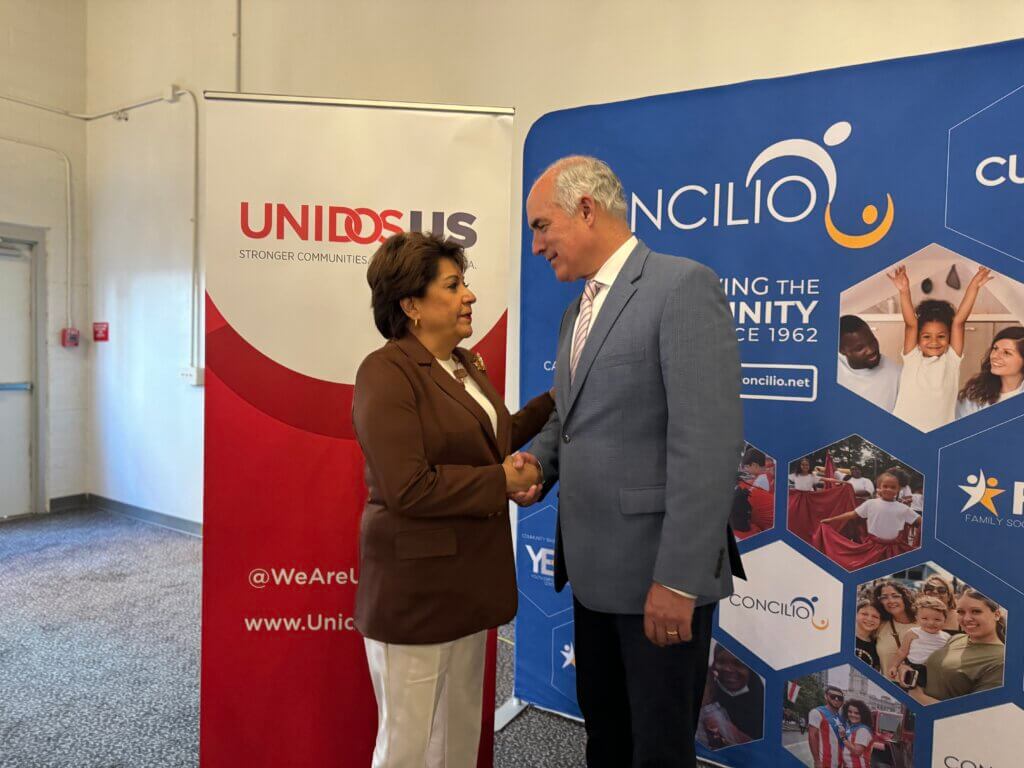Investing in Latino Economic Power: A New Report on Post-Pandemic Recovery
If Latinos in the U.S. were their own country, it would be the fifth largest economy in the world, have 4.7 million Hispanic-owned businesses within it and a real consumption rate that is growing three times faster than that of non-Hispanic whites.
But despite being a large economic power, many working-class Latinos are still battling post-pandemic pocketbook issues and those who recovered may not be out of woods yet. These are among the findings of our newest economic report which shines a light on what Latinos need to not only achieve pre-pandemic economic stability, but expand upon it as well.
“Nearly 70% of Latino voters benefited from at least one federal pandemic relief policy. These bold investments helped drop Hispanic unemployment back under 5% by the end of 2021, grew real wages for Hispanics at their fastest rate in 40 years and allowed the U.S. to make the fastest economic recovery in the world,” stated UnidosUS Senior Vice President Eric Rodriguez.
Keep up with the latest from UnidosUS
Sign up for the weekly UnidosUS Action Network newsletter delivered every Thursday.
While public investments bolstered Latinos’ return to financial normalcy, lack of continued funding and expiration of certain financial supports has reversed much of the progress the community has made. With pandemic aid dissipating, the percentage of Latinos who felt financially OK went from a high of 71% in 2021 to 61%. Alongside that finding, more than a million Latino children fell back into poverty; a daunting reality that impacts real people like Miriam Paredo Roque.
Miriam is the mother of a 10-year-old son and one of many Latinas who work as maids and housekeepers in the United States. Because her work can be unpredictable, she could go weeks without a paycheck. But thanks to benefits like the Child Tax Credit (CTC), Miriam was able to save up for those workload lows and care for her family without the fear of backsliding.
“The last five years have shown us how smart public investments can remove unnecessary barriers to opportunity and strengthen both working-class and middle-class communities,” said Lisette Orellana Engel, Director of UnidosUS’s Economic Policy Project. “As the federal government prepares to deploy more than a trillion new dollars in the U.S. economy thanks to the Inflation Reduction Act, Infrastructure Investment and Jobs Act, and CHIPS and Science Act, it is essential that these funds are administered in a way that ensures they reach and benefit the Latino community.”
In a recent UnidosUS poll conducted in Arizona, California and Texas, findings showed that 62% of respondents had minimal emergency savings. When polling college-educated Latinos, over a quarter stated they had less than $10,000 in retirement savings. Public investment have proven its efficiency in invigorating the Latino economy, but with rising costs in healthcare and housing, those investments need to be continued for sustained progress to be made.
Among our policy recommendations are:
- Permanent and expanded childcare tax credit,
- investments in job training,
- crack down on predatory lending,
- increase in Pell grants for public and community colleges,
- Offer tax incentives for developers and reform zoning laws to increase the availability and affordability of starter homes.
Latino recovery is contingent on funding that acknowledges the community’s economic power. But without consistent investment, that power is greatly diminished, and the whole nation would bear the financial brunt. An economically secure United States needs a secure Latino community. And the Latino community needs to be invested in.
The full report is available here.



